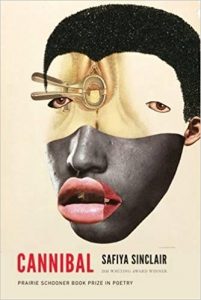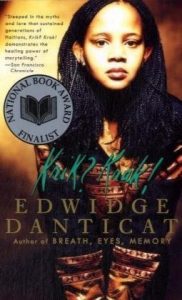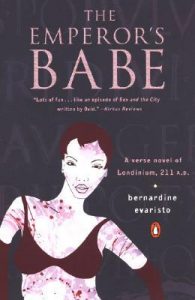To celebrate Black History Month, Dr. Nancy Comorau (the resident postcolonial specialist of Sturges) teamed up with Kirsten Whitford and Carrie Kubicki (the resident Instagram gurus of Sturges) to share a book by a Black author every few days.
Books ranged from plays by Afro-Carribian British actors to volumes of poetry about being a Jamaican woman in the US to nonfiction works by journalists investigating the Black Lives Matter movement. Read on for a snippet of each of her recommendations!
“A Distant Shore” by Caryl Phillips: With its focus on a refugee seeking a new life in Northern England, this book seems incredibly important in our current political climate. At its heart, Phillips explores the lives of the people society deems unworthy of being citizens and addresses the ways we’re willing to change in our nations and homes.

Photo credit: Amazon.
“Cannibal” by Safiya Sinclair: The work inside the cover is as striking as the image on the front. Sinclair incorporates the lives of Shakespeare and Thomas Jefferson as she traces her development as a writer and her move from Jamaica to the US, where her Black body is fetishized and her voice as a Black Caribbean women poet challenged. This is a challenging volume, but my lovely students built a reading guide to help readers through the dense network of the book’s allusions.
“They Can’t Kill Us All” by Wesley Lowery: This book gives readers an understanding of what it’s like to be on the ground with Black Lives Matter protesters and those policing them. Lowery traces a grassroots activism network as it connects around the nation and asks us to look at the value of protest and Black lives in 21st-century America.
“White Teeth” by Zadie Smith: Smith’s first novel is a delight. Following two families in North London, “White Teeth” chronicles the steadfastness of friendship, the difficulties of adolescence, the stubbornness of family secrets and Britain’s changing notions of Britishness through the 80s and 90s.

Photo credit: Goodreads
“Krik? Krak!” by Edwidge Danticat: A wonderful short story collection by Haitian American writer Edwidge Danticat. The stories follow Haitian Americans and Haitians emigrating to the US, including mothers and daughters, estranged lovers, people struggling to live under corrupt, authoritarian governments and rebellions personal and political, great and small. The collection’s longest and final story, “Caroline’s Wedding,” is currently being adapted for film.
“Elmina’s Kitchen” by Kwame Kwei-Armah: Something for all of my lovely theatre majors. Kwame Kwei-Armah is a Black British playwright (and sometime actor) who is the first Black person to direct a London theatre. Kwei-Armah’s plays focus on fractures within London’s Black communities. This volume features his famous “Elmina’s Kitchen,” which is set in a West Indian restaurant in East London and explores the temptation of drugs and crime for London’s youth.

Photo credit: Goodreads
“What We Lose” by Zinzi Clemmons: Clemmons’ novel tells the story of a college-aged woman who loses her mother to cancer. It explores grief, belonging, public health, race and the ways in which we may, and sometimes may not, hold on to the people in our lives.
“The Emperor’s Babe” by Bernardine Evaristo: Evaristo’s novel in verse tells the story of multicultural London in 200 AD, when the British Empire’s metropole was a far-flung outpost in the Roman Empire and Rome’s emperor was born in modern-day Libya. Her protagonist is an immigrant, like so many Londoners have been. The novel is funny, warm and brutally sad as Zuleika is promised to the emperor to improve her family’s status. While elements of this story will seem familiar, I know of no other books like it.
For the full posts, more book recommendations, thoughtful photos and minute musings from the Scholars of Sturges, follow the OWU English Department (@owuenglishdepartment) on Instagram.

